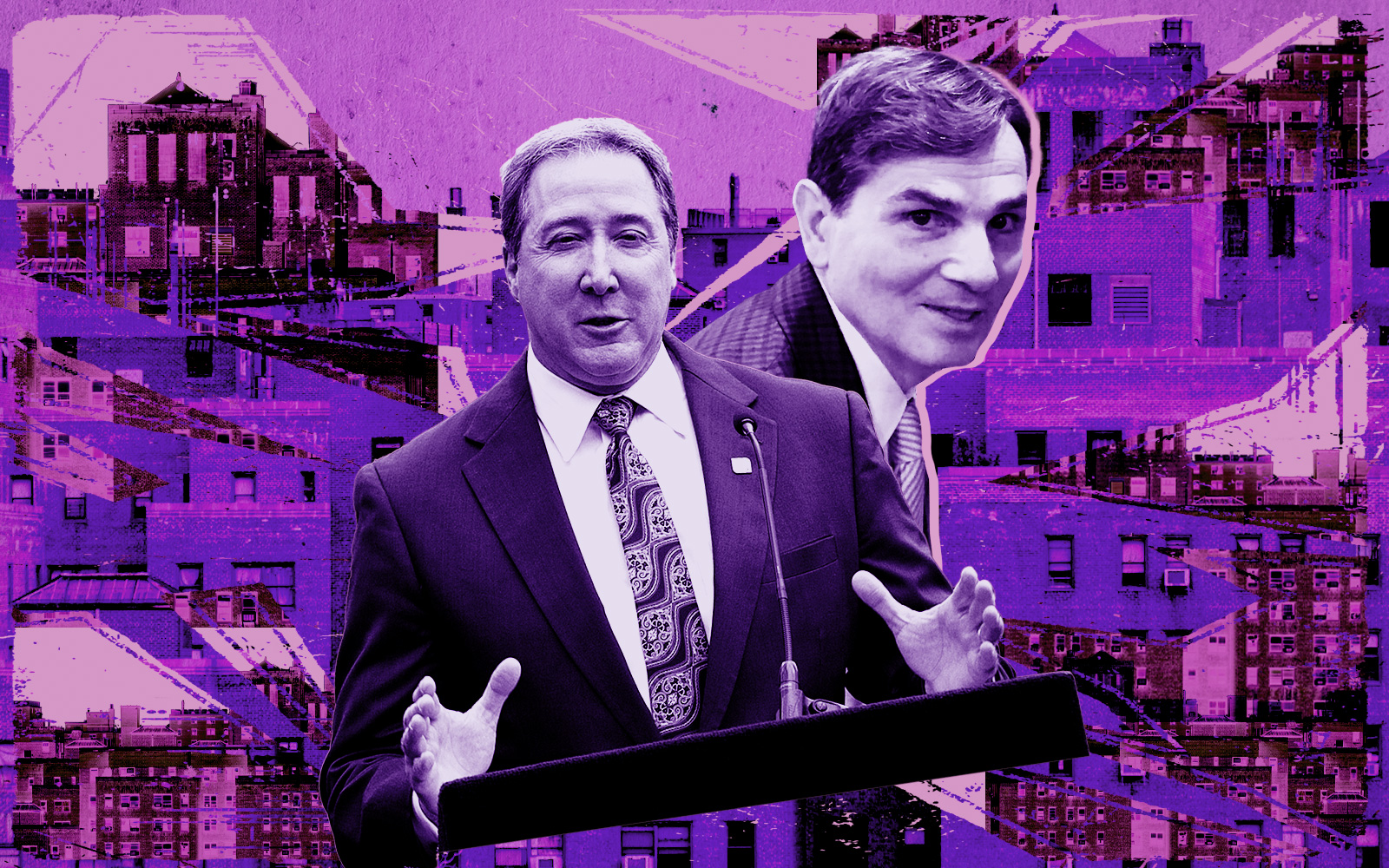New York Community Bank’s deal to buy loans from the Signature Bank excludes the failed institution’s multifamily mortgages.
The snub could signal problems with those loans, which primarily cover the troubled rent-stabilized sector, or simply that NYCB didn’t want to be overweighted in that area.
Either way, it may diminish hope for workouts among the many rent-stabilized building owners facing distress.
NYCB, through its recently acquired subsidiary Flagstar Bank, picked up $12.9 billion worth of Signature’s total $74 billion loan portfolio Sunday in a deal with regulators who seized the major multifamily lender a week before.
NYCB, which had been Signature’s primary competitor, said the deal included none of Signature’s commercial real estate portfolio, which totaled $35 billion at the end of 2022, or its $19.5 billion multifamily loan book.
“We did not acquire any multifamily or commercial real estate loans,” said spokesperson Salvatore DiMartino. “Zero.”
Jay Martin, executive director of landlord group the Community Housing Improvement Program, called that lack of interest “really concerning.”
“And it may speak to broader problems within the multifamily industry,” Martin said.
The majority of Signature’s multifamily lending was to rent-stabilized properties, which have seen values sink between 20 to 65 percent since a 2019 state law severely limited rent increases, according to an analysis by Maverick Real Estate Partners.
With revenue streams capped, owners faced with inflated operating costs and billions in pandemic arrears have struggled to keep buildings above water. Meanwhile, interest rates have risen 4 percentage points in the past year, making refinancing more expensive. Lending standards had also tightened even before this month’s bank failures.
Before Signature collapsed, filings with the Federal Deposit Insurance Corporation showed hardly any distress in its apartment building loans. Just 0.42 percent of its $19.5 multifamily portfolio was marked as past due.
But insiders say there are many ways for borrowers to stave off delinquency and for lenders to keep signs of it off their balance sheets.
Owners can pull revenue from performing buildings to cover troubled properties or delay maintenance to scrape together money in the short term. Banks can get creative with accounting to keep delinquencies off their books.
Typically, loans won’t show as troubled until the owner faces a mortgage reset — at which point the landlord must accept a higher interest rate or refinance — or when the loan comes due.
Commercial brokers expect the fallout from resets and maturities to crop up later this year, when loans issued before the 2019 rent law start to come up.
“This is like a train wreck in slow motion,” said Billy Schur, president of owner group the Bronx Realty Advisory Board said of the rent-stabilized sector. “Once someone starts with the default, I don’t see how they’re getting out of trouble.”
As the city’s largest rent-stabilized lender, NYCB understood the risks and chose not to add more such loans to its books.
Even if the bank were optimistic about that debt, adding it would have run counter to its diversification efforts. Signature’s acquisition of Flagstar last year diversified its loan portfolio by adding a sizable chunk of residential mortgages. “We have to acknowledge how concentrated we are,” CEO Tom Cangemi said in a call with analysts Monday, according to Crain’s.
It is also possible that NYCB didn’t want to buy the low-rate loans issued before the Fed began raising rates last March.
“The rates on those loans may not have been attractive if they weren’t getting a good enough discount on the portfolio,” said Eric Orenstein, a commercial real estate attorney at Rosenberg & Estis.
Either way, Martin said, the delayed sale doesn’t bode well for potential buyers’ perception of the multifamily loan book.
“As long as the loans are out there, they grow hair on them,” Martin said. “The longer they sit, the larger the concern will be that there’s something wrong with those loans.”
For stabilized borrowers facing distress, NYCB’s pass on Signature’s commercial real estate portfolio could spell tougher times ahead.
Regulators are still overseeing more than $61 billion worth of Signature loans, which they may sell in full to another bank or piecemeal to several buyers.
For borrowers who are current on their mortgages, the selloff will have minimal impact, Orenstein said.
For delinquent borrowers, though, it could mean a faster fall into foreclosure, should buyers emerge for their loans. Signature and NYCB did far more banking for the city’s multifamily owners than other lenders did. Institutions unfamiliar with the rent-stabilized market or its players are less likely to pursue workouts.
Read more



